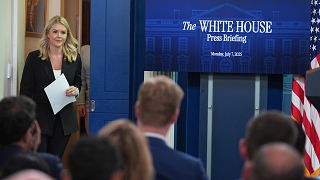Nigeria
Nigeria is one of the world’s top plastic polluters, generating over 2.5 million tons of plastic waste annually.
The need for a more comprehensive waste collection system and limited recycling facilities means that over 70 per cent of it ends up in the sea or in landfills.
Now, Nigeria has become the latest African country to join the fight against the global plastic crisis by banning single-use plastics, notably straws, cutlery, plastic bottles, and water sachets.
Research this year by the United Nations Environment Programme (UNEP) found that an estimated 50-60 million used water sachets are thrown onto the street every day in Lagos alone.
Initially the ban will be implemented in all national ministries, departments, and agencies – with the environment ministry stressing the need to lead by example - but it is due to be rolled out nationwide from January next year.
Most single-use plastics and packaging are produced from fossil fuels and the production process emits vast amounts of greenhouse gases that drive climate change.
However, despite the environmental benefits, the ban is drawing criticism in Nigeria which is hugely dependent on plastics.
The government is also drafting a new plastic use policy that will target a phased approach to eliminating plastic waste.












01:06
Brazil launches major security operation ahead of BRICS Summit
01:22
World will have to learn to live with heatwaves, UN says
11:15
AI drones lead breakthrough against malaria in Africa [Business Africa]
02:18
Netherlands returns 119 artifacts looted from Nigeria
Go to video
Evacuations begin: African citizens caught in Israel-Iran crossfire
02:08
Gunman attack in north-central Nigeria: death toll climbs to 150